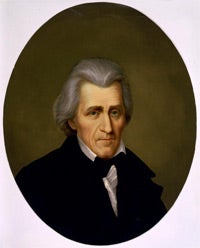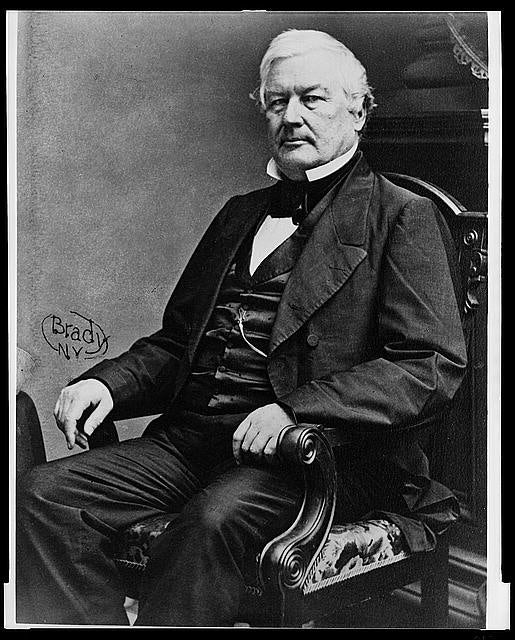Millard Fillmore, the 13th president of the United States, has largely been relegated to the ash heap of history; however, when he came to visit Augusta, he was treated like a political megastar.
Fillmore was one of those “accidental” presidents who was elected vice president on the 1849 Whig party ticket that placed Zachary Taylor in the White House. When Tayor died unexpectedly the following July, Fillmore ascended to the presidency.
The Fillmore administration is history that should be remembered because it took place at a very turbulent time in American politics. In fact, had Taylor not died, the Civil War may have happened a decade prior to the election of Republican Abraham Lincoln.

According to Michael Holt, emeritus professor of history at the University of Virginia, writing for the Miller Center, no sooner did Fillmore took the oath of office than the entire Taylor cabinet resigned because they knew that Fillmore planned to sign the hated Compromise of 1850 into law.
Taylor, a slaveholder, had made it clear that he had no intention of signing any compromises and was prepared to use force to keep the union together, should the South secede; however, his vision of a union still allowed for slavery.
Literally no one was happy with the Compromise of 1850, which made California a “free” state, allowed slavery to be decided by popular sovereignty in other emerging states and prohibited slavery in Washington D.C., according to the National Archives.
However, it was the strengthening of the Fugitive Slave Act that enraged Northerners, many of whom were anti-slavery.
The Compromise of 1850 fractured the already limping Whig party, and Fillmore was not nominated by the party to be the standard-bearer in the 1852 election. The Whig party would finally implode when its nominee, Winfield Scott, was trounced in the Electoral College by Democrat Franklin Pierce.
However, the Whig party, even though it soared for years, was destined for failure.

The party was largely conservative, favored tariffs and hated the Democrat former President Andrew Jackson, who many believed acted more like a king than a president.
The party was not known for sending its national candidates out to stump, but held huge rallies, barbecues and public meetings.
During this period, Augusta was rabid Whig country. The late Augusta historian Ed Cashin noted in his book, The Story of Augusta, that voters here elected four Whig mayors in succession.
Cashin wrote that while the businessmen of Augusta did not agree with South Carolina’s nullification policies regarding federal tariffs, they also detested Jackson’s banking policies as anti-business.
Augusta was also home to the large Springfield Village, a free Black community, and so the indecisiveness the Whig party showed to the issue of slavery was palatable to Augustans who preferred keeping the status quo and not rocking the boat either.
While Fillmore had a hideous reputation in Washington D.C., he was quite admired in the Garden City. As former president, he visited Augusta in May of 1854 and gave an address at city hall and, according to Cashin, praised city leaders for their stance against secession.
“Rarely (is) seen any public man, who was so successful in making a most favorable impression upon all with whom he came in contact,” gushed The Augusta Chronicle.
Fillmore, a man not used to being received warmly, would visit Augusta again a week later as he made his way back north.
…And that is something you may not have known.
Scott Hudson is the Senior Investigative Reporter and Editorial Page Editor for The Augusta Press. Reach him at scott@theaugustapress.com











